The Norwegian Book List
The Different Book Lists
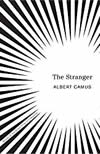 1. The Stranger by Albert Camus (October 2007) [Book #64/305]
1. The Stranger by Albert Camus (October 2007) [Book #64/305]
Also on My Book list - The Stranger is a very short and easy book to read, which I was able to finish in just a couple of hours. But that does not mean it cannot be a meaningful book. The story is written in the first person narrative about a man who is so self absorbed that he feels little or no emotion through everything that happens to him and does not realize most of his life is passing him by. The story starts with his mother's death, of which he never shows remorse for and becomes one of the reasons for his downfall in the end. Eventually, the main character is led to murder another man and his moral qualities, or lack there of, are his deciding factors. He eventually realizes his personal flaws but by then it is too late. The book is written in the "American" style that I so particularly enjoy. Short, crisp sentences that are easy to read and easy to understand. I am going to put this on my must read list because not only is it enjoyable, it also provides a pretty good life lesson.
2. Berlin Alexanderplatz by Alfred Doblin
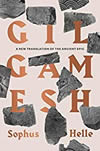 3. Gilgamesh by Anon (May 2022) [Book #171/305]
3. Gilgamesh by Anon (May 2022) [Book #171/305]
Also on My Book list - Gilgamesh is one of, if not the, oldest story known today. Written at least 4,000 years ago, it was originally found on a series of clay tablets in the cuneiform language. When originally discovered, we had not yet cracked the cuneiform code and therefore the story sat without us knowing what we had. Roughly 150 years ago linguists cracked the cuneiform code and the story of Gilgamesh was slowly realized and spread out among the world. So despite it being likely the oldest story we have today, it is still fairly young to modern literature, as opposed to The Iliad and The Odyssey. Written as an epic poem, Gilgamesh has not faired completely unharmed through the ages. The story itself is littered with missing words and whole sections of the story just missing. These gaps represent where tablets were illegible or even completely broken apart. The gaps cause a lot of the story to remain unknown, however, luckily, the story has a tendency to repeat itself. A lot. This allows us, as the reader, to potentially piece together many of the missing sections. The repeated sections also adds to the theory that this was originally meant to be presented in front of a live audience. Unfortunately though, the many, many repeated sections in written form have a tendency to get glossed over by the reader. The story itself tells of the ancient Mesopotamian king Gilgamesh who stands over 18 feet tall. Across the 12 known tablets, Gilgamesh battles the guardian Humbaba, he makes some friends along the way, and eventually becomes part of the tale of a great flood sent by the gods to inundate the world. There is even a boat that needs to be built in order to survive the flood (with specific building measurements given). This story, although near identical to the biblical account of the flood, was written over a thousand years earlier resulting in a very interesting history lesson. Overall I found the story of Gilgamesh to be alright on its own, however I found the most fascinating part was the history behind the story and all the contexts interlaid within the story itself. I highly recommend the Sophus Helle translated version, which includes essays about the epic and provides much needed context about various parts of the story. Being the foundational work of essentially the civilization that followed makes me want to recommend this work to everyone.
4. Mahabharata by Anon
5. Njaals Saga by Anon
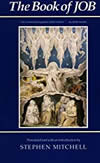 6. The Book of Job by Anon (July 2006) [Book #49/305]
6. The Book of Job by Anon (July 2006) [Book #49/305]
Although I have seen many 100 Greatest Book lists that put the entire Bible on them, out of my four lists only The Book of Job had made the cut. The Book of Job is often considered to be one of the best stories in the bible because of its attempts to justify the presence of good and evil both together on Earth. As I was reading through the story though, I was getting a little bit confused by the text about who was arguing for each side as God and Satan verbally sparred it out. Otherwise, the book seems to get its point across. Essentially, the story is about a man named Job (pronounced "Jobe") who looses his family and his health because of a bet between Gob and Satan to show that Job will still be a man of God despite all his tragedies. After reading the story I can see the moral implications of the story but it leaves a sour taste in my mouth to see God killing people just to prove a point. Overall, I probably wouldn't advise this as a great work of literature.
7. Thousand and One Nights by Anon
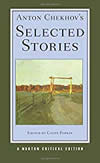 8. Selected Stories by Anton P Chekhov (December 2012) [Book #114/305]
8. Selected Stories by Anton P Chekhov (December 2012) [Book #114/305]
Also included in a listing on Zane's Top 10 List - There are two sets of Chekhov stories on these lists. Zane's Top 10 list includes all of his stories (~200) while this one, only has 24 stories. In general, the stories are have been moderately "OK". Many of the early ones feel like Poe, but without the twist; in other words they were rather boring. But his later stories did have the ability to make me feel for the characters even if the story was only 2 pages long. The stories ranged in length from 2 to 35 pages long with most of them being under 10 pages. Should you go out and get this? I don't think it is necessary. His writing is good, but overall, I didn't feel anything great reading the stories. Perhaps I am just not a short story advocate.
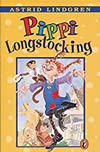 9. Pippi Longstocking by Astrid Lindgren (January 2021) [Book #165/305]
9. Pippi Longstocking by Astrid Lindgren (January 2021) [Book #165/305]
Pippi Longstocking is the first in a series of books about the eponymous red-headed girl with the braids that stick straight out of her head. At the start of the story, Pippi is an 11 year-old girl who had been left on her own after he mother died and her father went missing at sea (and is presumed dead). Having been raised on a ship with her father, she isn't the smartest child, but she had been left with a fortune and a house and somehow manages to take care of herself, as well as her pet monkey and her horse. She is a peculiar child, to say the least, with incredible strength, wearing mismatched and oversized clothes, and pretty much does whatever she wants, whenever she wants to. The book itself is set up as a series of adventures, with each chapter laying out a new adventure for Pippi, along with her neighbors Tommy and Annika to go on. And while the adventures of previous chapters may be briefly remarked upon in the following chapters, they generally are forgotten about in favor of the new adventure. This is very much like the way that Winnie-the-Pooh is set up, however there seems to be more of a connecting thread here, however slight it might be. The book was originally written in Swedish, of which I read a translated version. I read this book out loud to my daughter as part of our nightly book reading and the translation was rough at times for me (the version I read was translated by Florence Lamborn). Word combinations that were hard to dictate, sentences that often didn't make sense as translated, and word choices that were not likely the best ones. That isn't a slight against the book, but it did make enjoying the book that much harder. The book itself was alright. I don't see how this book would stand out against the other bazillion young reader chapter books with precocious kids doing what they want, when they want. The big difference here is that the author made Pippi such a powerhouse that nobody can tell her what to do, so she does whatever she wants. Overall, it's an ok book but not one that I recommend anyone go out of their way to read.
 10. Don Quixote by Miguel de Cervantes (January - June 2015) [Book #129/305]
10. Don Quixote by Miguel de Cervantes (January - June 2015) [Book #129/305]
Also on the Sybervision, Observer, and My Book lists - Whenever I hear anyone reference Don Quixote, it is frequently in regards to his fighting windmills, or riding around on an old horse with a fat squire on a donkey. Well, that is pretty much the first 20-50 pages of a 1,000 page long story. Preconceptions of the story do not really encompass the true breadth and depth of it. The story is about a man who feels he has been tasked with restoring knight errantry back to Spain and dupes a simple minded farmer to accompany him (Sancho Panza). When I first started to read the story, I felt like this was the story for me. It was serialized television long before television even existed. There were even phrases like "when we last left our heroes...". It seemed perfect for me. The translation I was reading was awesome as well (the Everyman edition). It was translated into a very readable sort of Old English, with all of the poetry and songs maintaining their rhymes. I assume the context and feel of the story was maintained even though the wording needed to be changed. And my version extended the feel of the novel to the translation itself. The novel is written as if it is a Spanish translation of an older text (Arabic I believe), where my English translator even had notes added on top of his translation by an editor. It definitely gives it a story handed down through time aura about it.
The problems I have with the story started pretty early though. I felt the story started to drag on really early in the first part. Adventures seemed to take forever; there were many side stories that added little (if anything) to the overall narrative, and I just felt the pace of the story slowing down dramatically. I felt I needed to trudge through most of the middle part of the novel until hitting the second part. When I really started to enjoy the story was during the last third of the novel, when the story became self referential. The first half of the novel was apparently published earlier and characters within the second half of the story had often either read it or had heard of it. There is even parts where a real life sequel to the first book was published by a different author and the characters in the book go out of their way to prove that book to be a false sequel. It's actually pretty meta. As for the ending: it felt very, very rushed. The ending could have been placed at any point in the book and still have fit, as there was no real build up to it during the narrative. It would have been better if certain story points (mainly Dulcinea del Toboso) were even addressed during the ending instead of just dropped as if she never even mattered. Overall, I would say the story was actually quite a bit of fun when it started to pick up during the later half but an abridged version of the story may be the way to go for many people (although I personally refuse to go abridged).
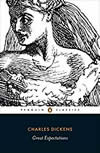 11.Great Expectations by Charles Dickens (2004) [Book #30/305]
11.Great Expectations by Charles Dickens (2004) [Book #30/305]
Also on the Sybervision, BBC, and My Book lists - Great Expectations was one of Dickens' last novels, and by far one of his best. The novel follows Pip, a street orphan, as he is saved by a convict and eventually grows up to find love. While reading through the story it can be a bit slow at times but overall the story is well written and easy to follow. This book, along with most of Dickens' other works, also suffers from the eternal optimism that is a hallmark of Dickens writing, however it flows much more easily in this story than in others where it often feels forced. The story tackles many themes including wealth versus the poverty we see Pip start out with, love and rejection, and good versus evil. It is definitely a story with a warm heart at its center, as can be found usually with Dickens.
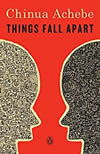 12.Things Fall Apart by Chinua Achebe (April 2018) [Book #147/305]
12.Things Fall Apart by Chinua Achebe (April 2018) [Book #147/305]
Also on the Observer and My Book list - Before ever reading this book, I was enamored by the title. Things Fall Apart is a truly fantastic title because it encompasses a whole lot of information with only three words. The story is also incredibly short, taking me less than a week to read with my version (the Everyman's Library hardcover) only having 180 pages. For the book itself I am terribly conflicted on how I feel. The first half of the book deals with the main character, Okonkwo, who lives within a tribal village in Africa. This story is his story, and we get to see life primarily from his point of view. My first problem though, is that he is a horribly unlikable character, however this could easily be a cultural thing. Within the story we witness Okonkwo's life from his perspective, where he routinely beats his wife and children and usually it is no big deal. There are times where he does get in trouble for it, but mostly because he does it during a sacred time, not that he actually did it. He also murders a kid early in the story, where it is implied he will see retribution in some form, but it never happens. Looking at Okonkwo's culture in general, it is presented as horribly machismo. If you're not a "man" then essentially you are weak and not worth the ground you will be buried in. I would visualize it as toxic masculinity at its worst, at least from Okonkwo's perspective. However, as you read more and more into the story the reader really gets into their society. It makes sense. And a lot of the things that happen, you as the reader, can go along with and understand. The first half sets up Okonkwo's life and culture and then something happens, which I'm still not terribly sure how it happened, but Okonkwo is exiled for seven years for manslaughter (essentially). And it is at this time that things start to "fall apart". And here is where it really starts to get interesting. I was under the impression while reading the first half, that this story would focus entirely on this African tribe but shortly into the second half of the story we are introduced to the 'white man', whom not many, if any, of the tribe have ever seen before. The white man ends up bringing his church with him and slowly lures people away from their culture, to the point that local tribesmen are doing things that are horrific to their former beliefs.
And this is where I am conflicted. On the one hand, I don't like the main character as a person. But on the other hand the church here is much worse. They basically condemn these people to death in many instances because the church obviously knows better. Not all of the church people are bad, but the good one in the story goes away and much worse people take his place. The reader can easily see that it is the church that basically dismantles this tribe's culture and society. You feel for these people and when 'everything falls apart', it's heartbreaking. The writing style of this book is actually fantastic. It is incredibly easy to read, which is remarkable since it was written in English, the author's second language. It does take a little while to get used to the names of the people, since many of them are written in similar styles, so piecing them apart to discern who is who takes some time. But I caught on fairly quickly. It's similar to Russian writing in this way. Overall, should you read this? A definite yes (I think). It's not a feel good story by any means, but it is an important one. It is a story about the death of a rich African culture, where the reader truly feels that culture, and watches it slip away from them. Where some of the people stand up to fight this change, and they are the ones who are quickly put down, leaving only this new system behind. Heartbreaking to say the least, but important to understand.
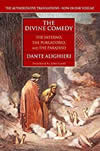 13.The Divine Comedy by Dante Alighieri (2002 - September 2005) [Book #39/305]
13.The Divine Comedy by Dante Alighieri (2002 - September 2005) [Book #39/305]
Also on the Sybervision list - The Divine Comedy is broken up into three separate parts: The Inferno, Purgatory, and Paradise. The story follows the poet Dante as he travels through each of the three afterlife worlds, meeting many of the people who once lived along his travels. By far the most interesting and most commonly read was Inferno. I had read Inferno in one of my college classes and I thoroughly enjoyed it. The visualizations were exquisite and remain with you years after you read it. I still remember everything that happened upon reaching the furthest depths of Hell. However, having read this in one of my classes I was probably spoiled, because upon reading the remaining two books on my own for this list, I found them dull and incomprehensible at times. The contemporary illustrations were also well beyond my understanding, even with an annotated book copy that helped explain some of that stuff. It got tedious though to bounce back and forth between text and description. It could have been my translation was not the best (a good translation is key), but it could also have been that having someone knowledgeable about the book made it that much more enjoyable. My suggestion with this series is to do it with someone who knows what is going on, like in a college class.
14. Jacques the Fatalist and His Master by Denis Diderot
15. Sons and Lovers by DH Lawrence
16. The Golden Notebook by Doris Lessing
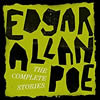 17. The Complete Tales by Edgar Allan Poe (April 2020 - April 2022 (Gaps in reading)) [Book #168/305]
17. The Complete Tales by Edgar Allan Poe (April 2020 - April 2022 (Gaps in reading)) [Book #168/305]
Taking me almost exactly two years to finish, The Complete Stories by Edgar Allan Poe was the version of the book I chose to read for this list. It is listed as The Complete Tales and therefore I assumed The Complete Stories would work. I collect the Everyman's Library of books and the version they had only included the short stories and none of the poems. Still, at over 950 quite dense pages and 68 stories, it took a while to work through. That, and Poe's writing style was a bit more, verbose, than I was expecting. Of the 68 stories, I had actually only heard of, and read, three or four of them, with most remaining a complete mystery to me. The book is arranged chronologically and this is both a help, because you can see how his writing style evolved over time, but also a hindrance because in the beginning he wrote very sesquipedalian (ha! now there's a word). This means his vocabulary was so large that trying to read any of his early stories was an exercise in frustration, because not many people could understand his writings without extensive dictionary work. He was plainly brilliant, but his writing had a high barrier to it and I quickly grew tired of trying to wade through the text. I kept trying again and again over the two years and I noticed he eventually was able to hit a rhythm where his prose, while still having some larger words, was "dumbed down" enough to allow the regular reader to be able to enjoy the text. This turning point actually happened right around the time he published his longest work, "The Narrative of Arthur Gordon Pym". It was from here that I really started to enjoy his work.
Personally, I am not the biggest fan of short stories because the quality is often all over the place. Some are great and some not so much, and I feel Poe is much the same. He wrote many of his stories with these random asides at the beginning that felt less a part of the story and more like he was philosophizing about anything. But once you get past these random asides, usually about a page or two in length, the story kicks in and is often enjoyable. His well known stories, like "The Tell-Tale Heart" and "The Pit and the Pendulum" are truly masterpieces and noticeably enjoyable amongst his other works. There is a reason they are picked out among his ample catalogue. But there are others I would recommend as well including the afore mentioned "The Narrative of Arthur Gordon Pym", "The Premature Burial", "The Gold-Bug", and one that is especially important in literary history, "The Murders in the Rue Morgue". As I was reading "The Murders in the Rue Morgue" I was convinced Poe just ripped of Doyle's Sherlock Holmes character. But as I thought about it, the timing didn't seem right and I looked it up and sure enough, one of Doyle's influences was Poe. "The Murders in the Rue Morgue" is essentially the original detective fiction. Poe then followed it up with two sequel short stories, "The Mystery of Marie Rogêt" and "The Purloined Letter". And although these aren't the sitting on the edge of your seat thrillers that we know of today in many detective stories, they are still enjoyable for what they are and a fun mystery to work through. Overall, I would say that the majority of Poe's work is excessively difficult to wade through and I wouldn't recommend most people to attempt it, however many of his works do stand out as simply outstanding and those are the ones everyone should cherry pick to read.
18. History by Elsa Morante
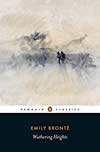 19. Wuthering Heights by Emily Bronte (May 2006) [Book #45/305]
19. Wuthering Heights by Emily Bronte (May 2006) [Book #45/305]
One of the 2 on all 4 of the 100 lists (Observer, Sybervision, BBC, and also My Book list) - Wuthering Heights ended up being a very weird book and not at all what I expected. I initially considered this to be one of those "chic lit" books but I couldn't have been more off. This is one of the most depressing books I have read yet. The book explores how Satan himself can sometimes corrupt people into being wretched human beings, but in the end sometimes they are able to pull through. Most of the story takes place as a flashback of one of the former housekeepers. It is a little confusing and not very enjoyable at first because of the erudite language Bronte used, but after a few chapters I got used to it. After the flashback it shows an orphaned child, Heathcliff, brought back to the house and is shunned by everyone. However, Heathcliff eventually takes over everything. Since most of this is known at the start of the story, it is interesting to see how everything comes about and to see how two separate families who differ in everything (intelligence, strength, and health) intermingle. This book is definitely on my must read list and it should be on yours.
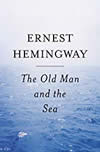 20. The Old Man and the Sea by Ernest Hemingway (1994?) [Book #2/305]
20. The Old Man and the Sea by Ernest Hemingway (1994?) [Book #2/305]
Also on the Sybervision list - The Old Man and the Sea is what I would consider Hemingway's Moby Dick story. It is a classic about the determination of an old Cuban fisherman fighting against a fish that would not give up. The shortest of Hemingway's works on this list and a great one too. A story about perseverance, old age, and how sometimes, no matter how hard you try, the results could still be considered a success even if they were not what you would have settled for at the beginning. I will have to add it to my must reread list as well.
 21. Medea by Euripides (March, 2023) [Book #176/305]
21. Medea by Euripides (March, 2023) [Book #176/305]
Medea is an ancient Greek play from 431 BCE and a very quick read. I read it in about 2 hours, and I took my time. The story is about a woman, Medea, who's husband leaves her and gets married to another woman, the princess of Corinth. And because of her "attitude" she is forced into exile from Corinth by the King of Corinth, the princess' father. And that's about it. The play mainly involves how she handles this rejection by not only her husband, but by nearly everyone around her. I would say it is a morality tale but there is no justice served by the end of the story. Nearly everyone is dead and no punishments are dished out. It is an interesting look at an ancient take on the "lover spurned" story and the vengeance that results.
 22. Gypsy Ballads by Federico Garcia Lorca (January 2025) [Book #183/305]
22. Gypsy Ballads by Federico Garcia Lorca (January 2025) [Book #183/305]
Comprising 18 poems, each about 2 pages in length, The Gypsy Ballads, is by far one of the shortest works on this list. And since it is so short it is hard for me to properly do it justice. That, and I am no expert in poetry. Also, while I feel the translator did his utmost best to translate these poems into English to put across the same feeling as they did in their original Spanish, there is something inherently lost when you move from one language to another in any form of literature, most of all poetry, which relies not only on the words choices of the authors but also the cadence of the lines, and even how the words look on the page. All that being said I rather enjoyed this short work. Since it was so short I wanted to take my time and absorb each of the works in their own right and slowly analyze of the metaphors that were being used. While a poetry expert would be able to extract far more than I ever could, I did enjoy the poems as they were presented to me. The introduction in my edition helped me to get into the mindset required to understand most of the work and even rather gather information about a lot of the metaphors presented. While some of the poems were rather gruesome, especially towards the end, they were written in order to shock the reader purposefully to the atrocities being committed against the gypsy people. Other of the poems were sweet and soothing to read. His poetry formats also bounced around with some being more free verse while other rhyming. Overall, even though it was short, I also rather enjoyed it.
23. The Book of Disquiet by Fernando Pessoa
24. Gargantua and Pantagruel by Francois Rabelais
25. The Castle by Franz Kafka
26. The Complete Stories by Franz Kafka
27. The Trial by Franz Kafka
Also on the Observer list -
 28. Crime and Punishment by Fyodor M Dostoyevsky (1999) [Book #12/305]
28. Crime and Punishment by Fyodor M Dostoyevsky (1999) [Book #12/305]
Also on the Sybervision, BBC, and My Book lists - After reading Crime and Punishment, Dostoyevsky went straight to one of my favorite authors. The book follows a man who feels he can commit the "perfect murder". Unfortunately, his guilty conscious gets the better of him and after a long, agonizing reflection period he is eventually caught and punished for his crimes. The writing was excellent, and the story gave us every little nuance in the character's subconscious during the whole ordeal, from planning to regret. This book also illustrated to me that Russian actually translates very well to English, where I have rarely had difficulty in understanding a Russian-to-English translated work, and it has made Russian writers usually some of my favorites. In actuality, my only problem with the book is the epilogue, which is so out of place in the story that it is obvious it was added afterwards because the publishers were unhappy with how the original story concluded. To get the full impact of the story a reader may just want to not read that section, in my opinion. This is a definite recommend in my opinion.
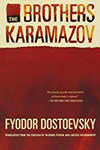 29. The Brothers Karamazov by Fyodor M Dostoyevsky (July - September 2006) [Book #52/305]
29. The Brothers Karamazov by Fyodor M Dostoyevsky (July - September 2006) [Book #52/305]
On the Sybervision and the Observer lists - After reading Crime and Punishment I became a big fan of Dostoyevsky, an I found that this book read a lot like Crime and Punishment, which is the reason why I liked it so much. I probably would put this on my personal must read list but Crime and Punishment is already on the list and I thought that Crime and Punishment was a much better book. Overall I though the book was extremely well written, but long (~800 pages) and I did not fully understand the point of the epilogue. A good translation can make or break a story and I have found over time that Russian literature has a tendency to translate very well into English. The Brothers Karamazov is about 3 (maybe 4) brothers all from the same father but different mothers. All of them have widely varied personalities ranging from borderline psychotic to deeply religious to the non-religious academic. The story culminates in a murder that we as the reader know the brother did not commit but he is put on trial for. I like the way the story was written, with us knowing more than the people in the trial and the ending for the most part made sense; again except for the epilogue. So if you are in the mood for a long but relatively uncomplicated read, I recommend this one.
30. The Idiot by Fyodor M Dostoyevsky
31. The Possessed by Fyodor M Dostoyevsky
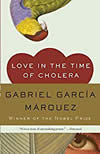 32. Love in the Time of Cholera by Gabriel Garcia Marquez (October-November 2007) [Book #65/305]
32. Love in the Time of Cholera by Gabriel Garcia Marquez (October-November 2007) [Book #65/305]
Also on the BBC and My Book lists - I delved into this book being wary of it because of the bizarre title, however I found it to be greatly enjoyable. The title really just signifies the time period of the story and not the plot. The book is a love story with a girl whose father tries to get her married above her station and two men who both fall for the girl. The one man is about the same level as the girl and falls head-over-heals for her while the other man is a very prominent doctor who is the supreme bachelor in the community. The story starts off with the woman and the doctor as an old married couple then flashes back to the beginning of the story. The story proceeds to move slowly through the lives of these three people advancing a little on one character then falling back again with another character's story. Marquez does this phenomenally so that you do not even realize that the story changes from one character's narrative to another. Since there is no clear "good guy" or "bad guy", I found myself cheering for everyone, all the while riveted to the book and worried that something major would go wrong. I would definitely recommend this for anyone, especially those in a romantic story mood.
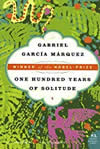 33. One Hundred Years of Solitude by Gabriel Garcia Marquez (June-July 2019) [Book #153/305]
33. One Hundred Years of Solitude by Gabriel Garcia Marquez (June-July 2019) [Book #153/305]
Also on the Observer, BBC, and My Book lists - I found myself constantly comparing One Hundred Years of Solitude to Marquez's other work on the list that I read almost 12 years ago, Love in the Time of Cholera. You can definitely get a feeling for Marquez's style between the two books. I have to say though, that between the two, Love in the Time of Cholera was a much easier book to get in to, but One Hundred Years of Solitude was the more impactful. To sum it up One Hundred Years of Solitude was fascinating, horrifying, hilarious, depressing, intriguing, and by the end, I couldn't put it down. The story is about a fictional South American town named Macondo that was founded by the couple José Arcadio Buendía and Úrsula Buendía. Within the story we follow the development of the Buendía family, and despite how large or small the town gets, eventually turning into a thriving metropolis, we never really feel that because of the focus on this family. However, the family mirrors the effects of the town; as the town grows, so does the family, as the town shrinks, so does the family. One of the first things we learn about the family though is that there are issues with the family, specifically incest, which comes up again and again, which is one of those things that is rather horrifying in the story. The story, though, is about cycles, and how everything changes, yet everything stays the same.
One of the hardest parts of the story to get through was the names of the characters. The story was written where time kind of bounced all over. Even the first sentence of the book begins with an illusion to what would happen halfway through the narrative. But the names of the characters were all either identical or very, very similar, making keeping track of who was who extremely difficult at times. By the end I still couldn't remember who was who's daughter/grandmother/aunt. But it works in the context of the story. The Buendía family is constantly making the same mistakes, constantly rehashing the same issues, through several generations, and by renaming their kids after either the patriarch José Arcadio or Aureliano (I believe there was at least 22 Aurelianos mentioned by the end of the story), it got to be rather confusing. This was not an easy book to read because of that. I could only read about 20 pages a night because I kept having to go back and rereading to figure out who was who as time slowly marched on through the story, bouncing back and forth as it went. The chapter breaks generally covered a different person within the generations as they progressed through life as well. So by the time I got to the end of the story, I immediately wanted to jump back to the beginning to see how it all tied together. This is a definite reread story, to catch all the hints about later parts of the story in the earlier sections. It is a story about time, where time doesn't seem to be happening. It is a fascinating tale and a definite one on my must read list, but it is work to get through, if you want to get everything out of it.
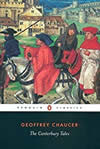 34. Canterbury Tales by Geoffrey Chaucer (January - March 2010) [Book #87/305]
34. Canterbury Tales by Geoffrey Chaucer (January - March 2010) [Book #87/305]
Also on the Sybervision list - I started off reading The Canterbury Tales by reading the introduction, which in my version states that "anyone who is too lazy to master the comparatively small glossary necessary to understand Chaucer deserves to be shut out from reading good books for ever," by Ezra Pound. Awesome. I had high hopes for this book in the beginning. My wife said it was great, she really enjoyed what she read so I'm all looking forward to it. Then I start to read it, and I don't understand it, at all. And this had nothing to do with the "small glossary" it was written with but with the fact that all of the words are misspellings of modern words, and not even consistently misspelled the same way. When you sound the words out you can make sense of what is going on but my mind doesn't work that way. It turns out my wife read a more friendly translation than my original script of the book. Mine looks more like this: "And daunced wel, he wolde nat come ayeyn..." (and danced well, he would not come again). So it makes sense, but it took me about 400 pages to understand it on my first reading (about 1/2 the book). Anyway, I ended up reading a summary of what was going to happen on Gradesaver.com, and then reading the tales in the book. This ended up being a lifesaver, because even if I missed a line or two I would still know what was happening. Generally, the book had its high points and low points. A lot of the stories were rather fun and interesting, but a lot of them were a drudge to get through (i.e. The Tale of Melibee). Then the final story, The Parson's Tale, seemed completely out of place and contradictory to everything Chaucer has stated before. After several tales of husbands and wives who sleep around he comes in with this sermon about the seven deadly sins, stating things like masturbation is basically homicide and if a woman were to indulge in sexual activity she should be stoned to death. It seemed so out of place that I felt it was on purpose, to throw off the reader. So overall, Canterbury Tales is really a story that does not need to be read straight through. I recommend if you do want to read it, to pick out the best sections and read them alone. It feels like Chaucer added some of the tales more for context around particular stories, rather than the actual enjoyment of reading them.
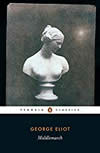 35.Middlemarch by George Eliot (January - March 2008) [Book #71/305]
35.Middlemarch by George Eliot (January - March 2008) [Book #71/305]
Also on the Sybervision, Zane, BBC, and My Book lists - I rather enjoyed Middlemarch. It started off slow, but as the book went on it picked up its pace rather well. Although the book was the longest I have yet read on this list, about 900 pages, the plot was simple enough that it was easy to follow throughout the entire book. Middlemarch is a town in England where the book follows the lives of the families living there, mainly two different families and their daughters. The book also delves into a lot of conflicts including doctors versus faith, modern medicine versus traditional medicine, and similar subjects. When I started reading the book I had a brief period where I needed to get used to the language being used but it didn't take me very long and afterwards I could easily understand what was going on. I can easily recommend this book as a great story with good lessons, if you are willing to take the time to read it.
 36. 1984 by George Orwell (February-March 2007) [Book #57/305]
36. 1984 by George Orwell (February-March 2007) [Book #57/305]
Also on the Observer, BBC, and My Book lists - Out of the four 100 Greatest Books lists, there are only a few books that appear on more than two lists. 1984 is one out of the few on multiple lists and I can understand why. 1984 is a very powerful novel dealing with possible totalitarian future society and how one might survive in such a society. The only problem I really had with this book was the utter hopelessness of it. Through every page, every paragraph of the book, you had this hope that everything may be ok and that everything turn out right in the world again. Unfortunately, after all is said and done, you knew that it wouldn't. Although this is a fascinating book to read it is very depressing but I must say that it is a definite must read, if only to warn people just might be possible. Because, well, you never know.
37. Complete Poems by Giacomo Leopardi
38. Decameron by Giovanni Boccaccio
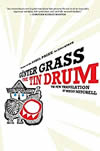 39. The Tin Drum by Günter Grass (February-March 2020) [Book #163/305]
39. The Tin Drum by Günter Grass (February-March 2020) [Book #163/305]
Also on the Observer list - Upon initially starting The Tin Drum, I had a couple of friends tell me that they really enjoyed the book, so I was looking forward to it. However, the first third of the book was very difficult for me to get into. It could have been the translation, having initially been written in German, but the text didn't really give me much problems. Especially towards the latter 2/3rds of the book. It was the context of the book that I had issues with. The book is essentially a slight supernatural/fantasy book following along a man named Oscar and his family as they grow up through World War 2 in Poland and Germany, although, the war barely plays a backdrop to the book. The story is really about Oscar and his unique abilities, of which there are a few notable ones. The main ability of his that is the namesake of the book was his relentless drumming from the age of 3 onward. The presence or absence of the drum played a pivotal role throughout the story and was essentially how Oscar was able to communicate with other people at times. Although, the most notable is that Oscar decided to stop growing (for the majority of the book) when he was three years old. He wasn't really a "little person" per se, because he never looked any older than a three year old. And although he was a self described genius, he often would act like a three year old at random times throughout the book. After a while this made Oscar not become the "hero" of the story, but a rather self-centered jackass, with less than noble morals. This all made him a not terribly likable character, performing various murders and rapes throughout the book. The prose of the novel was beautifully written but it did not allow for a smooth reading experience, forcing me as the reader, to take my time and read through it carefully. This resulted in being able to only read the book for short snippets of time, because otherwise I would get tired of trying to keep up with it. I actually think this book would be much better as an audiobook, reducing the mental concentration required. Overall, I would say that the story became entertaining, but was frequently frustrating, and I don't think I can recommend this but some people would probably enjoy it.
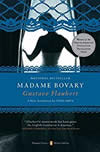 40. Madame Bovary by Gustave Flaubert (April 2010) [Book #88/305]
40. Madame Bovary by Gustave Flaubert (April 2010) [Book #88/305]
Also on the Sybervision, Zane, Observer, and My Book lists - The first thing I noticed while reading Madame Bovary was how well is flowed. One idea flowed into another, most of it without a break or pause. Seemingly unconnected thoughts were put together seamlessly in a string of narrative that I could only hope to replicate. I loved reading this book, especially after The Canterbury Tales, since the language was so much easier to follow and I'm not trying to decipher what the author is saying, I'm just enjoying the words. I did have some problems with the book though. The first being the very weak female characters, especially the main character. She seemed mostly to be reacting to events in her life and not being proactive in any of her choices. Nothing she did was really in response to what she wanted and more in response to what someone else wanted. And her child was the most useless of characters, almost inconsequential for 99% of the story. So, even though it did have some weak points, it was a marvelously written story and I would definitely recommend this as a must read.
41. Sentimental Education by Gustave Flaubert
42. Independent People by Halldor K Laxness
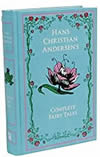 43. Fairy Tales and Stories by Hans Christian Andersen (~2015 to January 2021 with long breaks) [Book #166/305]
43. Fairy Tales and Stories by Hans Christian Andersen (~2015 to January 2021 with long breaks) [Book #166/305]
This book took me a long time to read. I started reading it with my daughter about 5 years ago during our bedtime reading. However, she did not like it at all, despite being a huge The Little Mermaid fan, and we eventually stopped reading it together. I then started to read it on my own, however I couldn't continue reading the stories for a long time, so I would put the book down for months at a time. This style of reading works for a short story compilation because there are no threads tying the stories together, but there is also nothing drawing me back into the book. Anderson wrote stories for over 40 years and in that time his writing style didn't change much at all. He would often start and finish stories in the same manner, with his story wrap up much like Forest Gump's "and that's all I have to say about that", which leaves a sour taste in my mouth. There really was no need to add the last sentence just saying the story was completed. Many of his earlier stories were basically just Christian folktales, with that theme cropping up throughout his writing career. He was also horribly misogynistic and anti-Semitic. There is an entire story about a Jewish girl who basically hates herself because she is Jewish and eventually dies happy finding out that she had finally been converted to being a Christian. He is also big on anthropomorphism, where many, if not most, of his stories revolve around viewing life around an inanimate object as if that object had thoughts and feelings. I think these were the most painful to read. His better stories focused on humans, and there are some rather enjoyable stories in the mix. I liked "The Thorny Road of Honor" and "Lucky Peer", as well as reading up on the original stories for all of the Disney Movies and other stories that had gotten passed down through time such as "The Little Mermaid", "The Ugly Duckling", and "The Little Match Girl". These were overall the high points of his writings and really would be the only ones I recommend people search out to read.
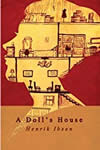 44. A Doll's House by Henrik Ibsen (June 2006) [Book #47/305]
44. A Doll's House by Henrik Ibsen (June 2006) [Book #47/305]
Also on the Sybervision list - A Doll's House is interesting because it is basically about the women's liberation movement long before there was ever a movement. The play is about a woman who has done nothing with her life except try to please two men, her father and her husband. However, it is when something tragic happens that she realizes that nothing is as perfect as it seems. The characters were written well and believable, and the story is very easy to read. Personally, I often have some issues reading plays because I feel I miss out on many of the hidden themes. Plays are often a lot denser with material because the "fluff" gets excised that you could potentially have in a novel, so anything left in the play is usually very important for the feel of the play or the plot. However, with A Doll's House I feel like I caught most of the subtle themes throughout the story and it was, like most plays, a very fast read. Definitely on my recommend list.
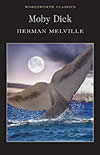 45. Moby Dick by Herman Melville (August-September 1998) [Book #9/305]
45. Moby Dick by Herman Melville (August-September 1998) [Book #9/305]
Also on the Sybervision and Observer lists - Moby Dick is often cited as the analogy for relentlessly pursuing your dreams, often to the detriment of everyone around you. My introduction to this book was not all that great, having been forced to read it in my senior year of high school and never fully appreciating it at the time. Besides the plot of the book, one of the things it is most known for is perhaps being one of the most famous introductory lines in all of literature: "Call me Ishmael." In general, the story is about a man while trying to take control of his fears ends up being destroyed in the process. The book reads slowly and the chapter describing whales escaped my understanding as to why it was even in the book (at least for my high school self). This is a not recommend by me but maybe this could improve with a rereading (although I don't see that ever happening).
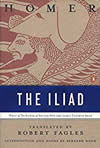 46. The Iliad by Homer (February 2004) [Book #25/305]
46. The Iliad by Homer (February 2004) [Book #25/305]
Also on the Sybervision list - The Iliad is the first of the two classical epic poems by the ancient Greek poet, Homer. The word "Iliad" is in reference to the ancient name for the city of Troy, which was "Ilium". This poem describes part of the ending of the Trojan War. Although, often thought to be the defining story of the Trojan War, it is actually missing most of the decade long war, most notably the fall of Achilles (via arrow to the heal) and the Trojan Horse itself. While reading the story, the poem often feels like a long list of names, akin to reading the Bible. Where "son of son of son" and so on are listed for every person of note, however, poem is fairly easy to follow along with. There is a huge problem with the story though, it doesn't have an ending. Following the funeral of Hector, the poem just ends. It picks up later with the travels of Odysseus in the Odyssey, but no conclusion to the war itself here. That is an odd way to end the book, especially since the book takes place so close to the end of the war already.
 47.The Odyssey by Homer (February 2004) [Book #26/305]
47.The Odyssey by Homer (February 2004) [Book #26/305]
Also on the Sybervision list - What is generally considered to be the sequel to The Iliad, the story of the end of the Trojan War continues after a short break in time. Written by the ancient Greek poet Homer, this story takes place at the end of the Trojan War as one of the war heroes, Odysseus, is trying to make his way home. However, after angering the god Poseidon, the trip home for Odysseus takes significantly longer than he was anticipating. He finally returns home after a ten year journey following the ten year long Trojan War. Along the way he almost gets eaten by a cyclops, does battle with many ancient monsters, and has to content with dangers near and far. This is the original traveling tale that so many tales have since been based upon. I personally find The Odyssey much better written and much more interesting than its predecessor. There is more going on in the story and the constant change in locations and events keeps the story interesting. My recommendation would to find a good translation, as that often makes or breaks a story.
48. Old Goriot by Honore de Balzac
49. Confessions of Zeno by Italo Svevo
50. Mathnawi by Jalal ad-din Rumi
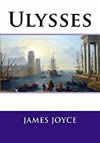 51. Ulysses by James Joyce (March-April 2007) [Book #58/305]
51. Ulysses by James Joyce (March-April 2007) [Book #58/305]
Also on the Observer and BBC lists - Although Ulysses is often listed as one of the best books of the 20th Century, I have some definite problems with it. My primary problem with Ulysses is it is written in an odd style, where no two chapters are similar in vocabulary, style, or even concept. Some examples include one chapter written like a play, one with newspaper type headlines, and one that illustrates the evolution of the English language over time. The story itself is based off of the Odyssey set in modern day (early 19th century) Ireland, where the author uses various quirks of language and format style to illustrate several different portions of the story. Had I read this book in a class where they could explain the information to me, I feel like this would have been a much better book, but I didn't. I did have to look up several descriptions of the book chapters online to figure out what was going on and after that the book became much better, but it is still a very difficult book to read. When reading it by yourself some of the sections are completely unintelligible, although the parts I did get I could tell where this book was groundbreaking for its time. After all is said and done though, I'm just not able to recommend this book to anyone anytime soon.
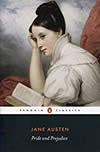 52.Pride and Prejudice by Jane Austen (July 2004) [Book #31/305]
52.Pride and Prejudice by Jane Austen (July 2004) [Book #31/305]
Also on the Sybervision, BBC, and My Book lists - During the early part of the 1800's there was a series series of books written that could generally be classified as romantic time period pieces. Many of these books were written by women who remain as popular today as the day they were written, especially Jane Austen, who is possibly the most famous of them all. The first of Austen's novels that I dove into, Pride and Prejudice, is possibly her best, if not her most famous novel. The story follows the lives of several socialites, all of varying social classes, trying to woo each other. Austen's writing style is full of whit and satire, and although it is incredibly intelligently written it still remains easy to read, a feat many authors fail at. She manages to take a variety of people, all with various attitudes and mannerisms, and involve them in a believable, yet very funny, series of verbal confrontations ranging from topics of marriage, money, and social class. This is definitely a book on my must read list and my favorite of her works.
53. The Devil to Pay in the Backlands by Joao Guimaraes Rosa
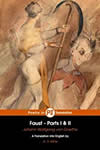 54. The Tragedy of Faust by Johann Wolfgang Von Goethe (September 2014) [Book #125/305]
54. The Tragedy of Faust by Johann Wolfgang Von Goethe (September 2014) [Book #125/305]
Also on the Sybervision list - Upon reading the first few sentences of Part 1, I was thinking, "Yea, I can really get into this". Part 1 was written in a poem like style very similar to The Rime of the Ancient Mariner, which I also loved. So I could see some promise in this. Then the story shifted and it mimicked Book of Job, which I didn't like, but I felt the concept was good and could see where they could improve upon it. Later on, the story morphed again, this time feeling very much like Dante's Inferno. Another story that I rather enjoyed. So in general, I had some promise for this story. Throughout Part 1, I was riveted and excited to see where the story went. When I reached the end of Part 1, the way several things were revealed was amazing. Initially I had thought we were supposed to guess at what happened but then the author revealed what happened afterwords, letting the information flow out in an unexpected way. Very enjoyable and satisfactory. IF the story had ended after part 1, this would be a 100% recommend. However, it didn't. The story of Faust is written as a play, although there are so many characters at some points I can't imaging it actually being acted out. Faust is a scholar who makes a deal with the devil, another main character, in exchange for excitement (as I interpreted it). He uses the devil throughout the story in order to get his way and eventually ruins a girls life. And so ends Part 1. Part 2, was published after Goethe's death and feels in many ways, like someone else wrote it. Or at the very least, like a different story. The plot is all over the place, sometimes it has Faust, but often it doesn't. The text is difficult to understand at times, perhaps due to the translation, more likely due to the story. At least there are some weak threads which tie back to the first part, especially the image of a beautiful girl seen in Part 1, who reappears for a large portion within the middle of the story. However, the story is barely intelligible and doesn't contain the magic emphasized in Part 1. So in summary, Part 1 is a definite recommend, but I personally can find no reason for anyone to read Part 2. There is a wrap-up to the Part 1 story within Act V of Part 2, but really, it isn't all that fulfilling.
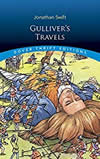 55. Gulliver's Travels by Jonathan Swift (2002) [Book #18/305]
55. Gulliver's Travels by Jonathan Swift (2002) [Book #18/305]
Also on the Observer and Sybervision lists - Gulliver's Travels is another of my "I had to read this in college" books that I need to go back to sometime when I have the chance. I read this book towards the end of my undergraduate career and getting nearer to when I started this book list in earnest. I had found the book very enjoyable that superficially was a fantasy book but in reality was a political commentary, very similar to how Pratchett writes his Discworld series. The main plot of the story follows Gulliver as he travels through many fantastical islands after he is the victim of a shipwreck. These islands includes races of tiny people, the Lilliputians, a race of giant people, a flying island, immortal people, and a race of talking horses, among others. Throughout it all he is forced to face the realities of his world when confronted with these fantasy situations. Gulliver's Travels is considered to be one of the greatest masterpieces in the English language and I look forward to revisiting it someday.
56. Collected Fictions by Jorge Luis Borges
57. Blindness by Jose Saramago
58. Nostromo by Joseph Conrad
Also on the Observer list -
59. Pedro Paramo by Juan Rulfo
60. The Recognition of Sakuntala by Kalidasa
61. Hunger by Knut Hamsun
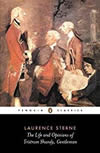 62. The Life and Opinions of Tristram Shandy by Laurence Sterne (August - October 2021) [Book #167/305]
62. The Life and Opinions of Tristram Shandy by Laurence Sterne (August - October 2021) [Book #167/305]
Also on the Observer list - Published over the course of eight years from 1759 to 1767, Tristram Shandy represented a departure from the typical books of its day. This book may be more seen as the proto-stream of consciousness novel with the author frequently bouncing around topics like they were in a pinball game. Sterne would go from his primary story, those about himself and his family, to some obscure, barely related tangent in the blink of an eye. He would then realize his tangent and eventually work his way back to the story in question. Although this was clearly the purpose of the book, it got to be extremely irritating. The book is written as an autobiography and stream of consciousness from the perspective of Tristram himself. However, it became abundantly clear that the story wasn't even about Tristram when it takes the author a third of the book to get to his own birth. The book winds up focusing mostly on the life of his uncle, Toby, as well as Toby's servant Trim. But despite the frequent tangents, the book actually turns out to be quite funny. There are times when one of the characters are trying to tell a story of their own and they keep getting interrupted by the other characters, so that each time the one telling the story starts to tell it, a new chapter starts. The title of that chapter then says something like "trying this one again", where eventually it takes the story teller five chapters to get the story finished. Another funny thing is how the book is constructed. Looking at the book itself, I assume most versions are published specifically how the author intended because of the way it is written. In my version of the book there were instances where entire pages were blank or page numbers skipped over on purpose. One such section threw me through a loop because 10 pages were skipped along with an entire chapter. The author then goes on to explain why those pages were skipped over, stating that he purposely ripped out the chapter. It's definitely a clever way of approaching the book and one I had never thought of. Even besides the constant bouncing around of topics, I think the thing that makes this book really difficult for me to read, is the way that it is written. Sentences will seem to go on forever with em-dashes breaking up thoughts within the sentence itself, so it's difficult to tell where a sentence truly begins and ends. This is very reminiscent of the later James Joyce in his Ulysses, a novel I also did not enjoy. Overall, this book felt like a chore to read with the constant thought diversions preventing me from being able to focus on the story myself. Along with the author, I felt my own attention wandering throughout the book. But this is clearly a work before its time. It stands out as a masterpiece of fiction for doing something that nobody else at the time was doing and in a way that made it at least somewhat enjoyable. Would I recommend this for people to read, definitely not, but as a lesson about the history of writing fiction I can definitely see this novel as a significant contributor.
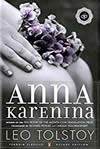 63. Anna Karenina by Leo Tolstoy (December 2008 - January 2009) [Book #80/305]
63. Anna Karenina by Leo Tolstoy (December 2008 - January 2009) [Book #80/305]
The only one on all 5 lists (Sybervision, Observer, BBC, and Zane) - Being the only book on all 5 of my Greatest Books lists, I had high hopes for it. And to start off, I thought this was one of the most well written stories I have ever read. Tolstoy just flows with descriptions that make you feel you understand everything that is going on. The characters are extremely well developed and even though they are Russian (which has a tendency to jump around with names a bit) it is still easy to follow who is who. I enjoyed several of the references to early communist culture (the book takes place about 30 years before the communist revolution) and several of the characters' personality polarities and themes that are emphasized in the book (religious vs non-religious, upper vs lower class, etc.). However, I did have some problems with the book. The story felt like two separate stories going on at the same time. The "main" one should be the one with Anna but I got the feeling that for the most part the main story was the one that centered around Levin, who supposedly represented Tolstoy himself. The Anna story itself felt enjoyable and well written, focusing around her leaving her husband for another man, of which that relationship slowly dissolves over the length of the book as well. While the story with Levin, although in parts were very good, I felt was very political and sometimes unimportant to anything. The whole last section (after the Anna story line was wrapped up) felt forced and out of place, leaving me wishing that the book would just end. All in all, I very much enjoyed the first half of the novel but the second half seemed to drag on a bit. I am not going to recommend this on my list and personally would not consider this the greatest book ever. But being that it is on so many book lists it probably should be one that you read.
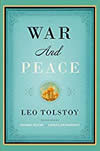 64. War and Peace by Leo Tolstoy (August 2011 - February 2012) [Book #102/305]
64. War and Peace by Leo Tolstoy (August 2011 - February 2012) [Book #102/305]
On the Sybervision, Zane, and the BBC lists -This is often mentioned as one of those books known just for being long, and long it is (~1600 pages) but not many people can say what the main story is about. This book follows Napoleon's invasion of Russia during the early 1800's, but most importantly during 1812. My overall impression of War and Peace, is that it feels like a typical Russian novel. In this instance the characters are a little easier to figure out than a typical Russian novel, because he doesn't use as many names for the same character as Dostoevsky often does. Even so, he does has a lot of reoccurring characters. As I think about it now, I'm not sure if all of their story lines were wrapped up by the end of the novel. You forget about some of them, then all of the sudden they return. The story is a historical fiction novel with the characters interacting with historical figures. It actually felt like a history novel because the situations played out so well. I would recommend this book to any history buff interested in the Napoleonic Wars, although I still don't understand why Napoleon was driven from Russian, even now. The book is divided into 4 books, with 2 epilogues, and an appendix. The first epilogue felt so much like the rest of the book that I'm not sure why it was made as an epilogue. It just continued the story on from the previous section. It even has chapters. But the second epilogue is what broke me. After reading this book for 7 months you give me this theoretical musing on the purpose of war and why Napoleon did what he did. It was definitely a drudge to get through and I am convinced he wrote that last section just so people would never finish this book. The second epilogue mimicked the style used for the first one or two chapters of each book but this was just orders of magnitude worse. During the actual story, he would give an overall synopsis of the war, and what Napoleon was thinking, then move right back into the story, but the second epilogue had no place in this book and you would miss nothing by skipping it. Overall, I felt the story was good but I never felt anything for the characters. When they died, I didn't really care. And that about sums up my feelings on this book. It is over and I don't really care.
65. The Death of Ivan Ilyich and Other Stories by Leo Tolstoy
66. Journey to the End of the Night by Louis-Ferdinand Celine
Also on the Observer list -
67. Diary of a Madman and Other Stories by Lu Xun
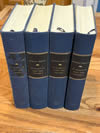 68.In Search of Lost Time (AKA Remembrance of Things Past) by Marcel Proust (June 2023-August 2024) [Book #180/305]
68.In Search of Lost Time (AKA Remembrance of Things Past) by Marcel Proust (June 2023-August 2024) [Book #180/305]
Also on the Observer and Norwegian lists - In Search of Lost Time holds a couple of places in my heart. First and foremost, it is by far the longest book I have ever read. It is ranked as one of the longest books ever written and clocks in over 4,000 pages depending on the print and page size. However a better estimate is the word count which is 1.175 million words. For comparison War and Peace has only 0.56 million words. So this book is essentially two War and Peace length books. It also took me over a year to read because it is a brain strain. He writes in VERY long sentences. Counting out the words of one notable sentence had me at 203 words for that sentence alone.
The book itself is broken down into seven volumes (these seven were then places into the four physical volumes that I had read and pictured above). The first volume of the story is probably the most famous and is often read as a standalone story, Swann's Way, however it was never meant as its own story. The text is also formatted without many paragraphs, about one per every two pages, and conversations flowed within the paragraphs instead of being seperated out into unique line breaks, as is the standard format. This means it generally took me about an hour to read 20 dense pages and I was often mentally exhausted after that from trying to follow the story. Another note of accomplishment is that this book was the last of the Zane's Top 10 books for me to finish, marking the first list I have successfully completed.
The story itself was ... interesting. It follows the remembrance of Proust's own life through his memories. And while the story generally flows in chronological order, he had a tendency to have tangential thoughts for pages at a time, where he will jump forward in time or ponder some theoretical question he had been grappling with. While I enjoyed the linear part of the story, the theoretical parts got to be a bit old after a while, especially when he would re-harp on the same essential questions over and over again. This story was also surprisingly "modern", with the author extensively tackling the subject of homosexuality. For a novel written in the early 1900's I was not expecting this pervasive look at homosexuality of the time. Here is though, one of the primary problems I had with the central part of the story. This is when the main character, presumably Proust himself, essentially kept his girlfriend "kidnapped" (for lack of a better word) in his house because he had assumed she was sleeping around with other women and he was jealous (maybe?). He would ponder many times over if she liked women, for 100's of pages at a time, with him never satisfactorily answering his own question (however as the reader I felt it was satisfactorily proven a yes). Many of the men also in the book led secretive homosexual lives, with one engaging in full on sadomasochistic acts during the latter parts of the novel. When he first delves into this aspect of the book he seemed to be weighing the morality of it, however eventually it seemed to me that he had accepted that side of society and proceeded right along (except when related to his girlfriend). Like I said, while this was completely unexpected, it was definitely not unappreciated on my part.
While there were parts of the story that were repeated ad nauseum, there were many parts I found fascinating. As time went by, we had the evolution of technology and how it changed. From the first telephones through the widespread use of the automobile, and how they impacted the characters lives. But time in this book was tricky, where it wasn't until the end of the book that I understood that this was all written as his memories. Time fluctuated through the book sporadically, to the point that you never really knew how much time had passed at any given point. Parties he attended took 100's of pages to depict but then years would fly by in the blink of a page. The book was also very "real", where deaths just happened as in real life, with most happening without a satisfactory reason that one would often find in stories. And for a book that seemingly went on forever there were many aspects that never got explained. There was a contemporary court case, often known as the Dreyfus Affair, that was constantly brought up and influenced the characters majorly, but was never actually explained within the story itself. Proust mentioned many times about his infirmity, but barely delved into what exactly he had. And there were other things that Proust felt he didn't need to explain, I assume because he felt a contemporary audience would understand. The book also didn't really have the flow of a "normal" novel. There was no literary action. There was no definitive conclusion. It just sort of winds down at the end, which presumably was when he started writing the book (since this was his memoirs of a sort).
Overall this is a difficult book to sum up and recommend to people. It is a monumental task to undertake and finish. It is also a difficult book to engage with and consistently stay engaged with. However finishing it I feel like I summited a literary mountain that I will proudly wave my flag upon. So while I am proud to have finished it and I found it worthwhile for the most part, I don't think I could recommend it to others to tackle unless they wanted the same goals as I.
69. Memoirs of Hadrian by Marguerite Yourcenar
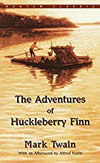 70. Adventures of Huckleberry Finn by Mark Twain (1996ish) [Book #3/305]
70. Adventures of Huckleberry Finn by Mark Twain (1996ish) [Book #3/305]
Also on the Sybervision, Zane, and the Observer lists - Huckleberry Finn is one of the many novels on this list which I had read as a result of a high school assignment. I actually had to read it a couple of times for school and I have since come to love the book. It is a rather contentious book because of the language used in the book, specifically the "N" word used so prolifically throughout, however I feel that is one of the reasons it should be read. The book forces people to look at where we were as a country, where we are now, and how far we still have to go. The main plot revolves around a childhood adventure story, where Huck runs away from home getting into all sorts of trouble along the way. He travels on his trip with escaped slave Jim, whom Huck goes from seeing just as a slave to eventually seeing him as a person and a friend. This book is a must read, if only because people try to ban it.
71. Essays by Michel de Montaigne
72. Children of Gebelawi by Naguib Mahfouz
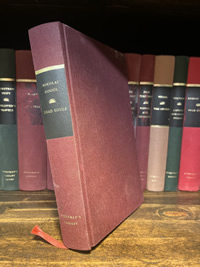 73. Dead Souls by Nikolai Gogol (March, 2025) [Book #186/305]
73. Dead Souls by Nikolai Gogol (March, 2025) [Book #186/305]
I had been interested in Gogol ever since reading The Namesake, where the primary character in that story is named after the author of this story. Dead Souls is the only story by Gogol on my list, and it has been waiting patiently for me to read it ever since I read The Namesake probably about 20 years previously. Dead Souls starts out with a translators note, which made all the difference in understanding this book. In Russia, during the 1800's, a peasant was bound to the land and subject to the landowner. Each peasant pays the landowner a tax and the landowner then pays the collected taxes to the government for every person, or "soul", that is on the property. The number of souls that each landowner owes money on is determined during the census, which has large gaps in time (the story takes place in a gap of 18 years between censuses). If a peasant was to die during that time between censuses, the landowner would still owe taxes on that peasant until the next census identified them as dead. These are the "dead souls". The premise of the novel is that a businessman named Chichikov has come up with a scheme where he goes around buying up the dead souls of the landowners. The first volume of the book basically follows him around as he attempts to buy these dead souls off of various people until the last chapter of the volume where we find out his background and why he is doing what he is doing. And let me tell you, I read that section three times and I still couldn't figure it out the reasoning. This is the whole premise of the novel so you would think it should be well laid out, but no, not a clue. The second volume of the story helped to make some sense of it but it still doesn't make total sense. It may be an issue where things are done differently now, so his scheme wouldn't work, or that there are key parts that are not explained since they would be known at the time, or it could be that his scheme doesn't actually make sense and there was no fixing it so the author just glossed over that fact, either way, it made for a disappointing read since that was the whole premise of the book. (I could explain but I don't want to give too many spoilers). I have always been a fan of Russian literature, and while the author was born in present day Ukraine, he lived in the Russia of the time and wrote in Russian. Generally from what I have read, translations from Russian to English are usually very well done, this one included, and it made reading and understanding the text to be a breeze. I greatly enjoyed that part. But there are issues with the story, besides just the enigmatic justification for the story. Apparently, Gogol had based his publishing volume 2 of the story contingent on volume 1 doing well. However it apparently didn't, so he ended up destroying parts of the manuscript. So there are parts of sentences, pages, and even whole chapters just missing from the story (and noted as such by the translator). So whatever happens in Volume 2 is sometimes summarized by the translator because an unknown number of chapters is just ... gone. I had hoped it would be something akin to The Mystery of Edwin Drood, but no such luck. It just feels incomplete and lacking in the end. Not enough answers for the questions raised and a lackluster finish to a story that started out interesting.
74. Zorba the Greek by Nikos Kazantzakis
75. Metamorphoses by Ovid
76. Poems by Paul Celan
77. Invisible Man by Ralph Ellison
78. The Man Without Qualities by Robert Musil
79. Midnight's Children by Salman Rushdie
Also on the BBC list -
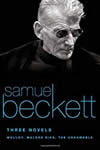 80. Trilogy: Molloy, Malone Dies, and The Unnamable by Samuel Beckett (July-August 2008) [Book #77/305]
80. Trilogy: Molloy, Malone Dies, and The Unnamable by Samuel Beckett (July-August 2008) [Book #77/305]
Malone Dies is also on the Observer list - The trilogy of Molloy, Malone Dies, and The Unnamable at first reminded me of Ulysses, which if anyone has noticed, I despised. But Beckett soon broke away from the incessant ramblings that plagued that novel and gave two really good stories, Molloy and Malone Dies. The novels were written with all the emotion removed and in a rather cryptic way that keeps the reader guessing as you read on. One of the interesting things about Molloy is that as you read through the second half of the story, it begins to feel as if you are getting the prelude to the first half. Malone Dies at first seemed to be completely disjointed from the first novel but reading through it you get the feeling the story may be about the character of Molloy and the book is just a continuation of the first novel. In the third novel, The Unnamable, Beckett returns to the rambling speech that is full of run-on sentences saying nothing. If it was not for the last novel I might recommend this series, but The Unnamable killed it for me. Unfortunately, you need to read all three to get the entire story. So although I somewhat enjoyed parts of it, I can not recommend this as a novel series to be read.
81. The Orchard by Sheikh Musharrif ud-din Sadi
82. The Tale of Genji by Shikibu Murasaki
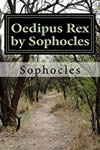 83.Oedipus Rex by Sophocles (May 2000) [Book #14/305]
83.Oedipus Rex by Sophocles (May 2000) [Book #14/305]
Also on the Sybervision list -Oedipus Rex is one of those plays that sticks with you for long after you read it. Even though it has been a very long time since I read it in my humanities class in undergrad I still recall the play vividly and how it made me feel. The story is the ultimate classic, about a man who murders his father and marries his mother. The purpose of the play is about fate and how the more you try to avoid fate the more you are going to cause fate to happen. How does knowing the future help us or how could it cause the future to happen? The most tragic thing about the whole story was it wasn't all Oedipus' fault. It started with his parents and their "curse" was carried down to him, and really was about him in the first place, but they got the proverbial ball rolling. This is a story-line that has been rehashed over and over again throughout our literary history and here is one of the first, and one of the best, to use it. I found the play very easy to understand and enjoyable. There are also two plays that continue the story, Oedipus at Colonus and Antigone, although those are not as well known as this one.
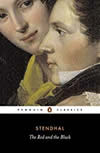 84. The Red and the Black by Stendahl (February 2017) [Book #144/305]
84. The Red and the Black by Stendahl (February 2017) [Book #144/305]
Also on the Sybervision list - Before I started reading The Red and the Black I was warned by a friend who kept saying that it really wasn't a good book. This did not get my hopes very high and I kept pushing the book off. However, since I am at the very end of the Sybervision Book List it was time to sit down and read it. The translation I read was that used in the Everyman's Library and was remarkable easy to read. That made the book rather enjoyable, at least at first, because I could jump right into the book without having to get used to the writing style. In regards to the story, I was under the impression (for some reason, I do not know) that this was a war story, similar to War and Peace or Les Miserables. Oh, how wrong I was. Apparently, this turned out to be a "romance" novel, and not one that was very well constructed. The main character, Julien Sorel, goes through two main loves in the book, which the book is divided into two main parts accordingly. Through most novels, the reader is made to feel for the protagonist, and to hope they succeed. Julien, though, was just a pain in the ass. At times he was overly arrogant, at others he was wishy-washy. He wanted one thing on one page, then would flip to the exact opposite the next. And the women he was lusting over had the same problems. The back and forths got to be so bad that I couldn't really care less what happened at any one moment, I just wished the story would progress somewhere, anywhere. I did find the hints of a fascinating story mixed in there though. There was at one point that Julien seemed to get mixed up in the politics of the time (just after the fall of Napoleon), which was the aristocracy versus the church, and he was to travel to England to deliver a message. However, that story-line was dropped so quickly that I had to go back and reread a few pages to find out what happened. That excitement is what gives me hope that the other Stendhal novel on my list, The Charterhouse of Parma, could be a great read, but I'm not holding out too much hope. Overall, the style of writing was very easy to follow and I just flew through this rather long novel, but the story itself kept having me banging my head against the wall. There is no way can I endorse this garbled mess.
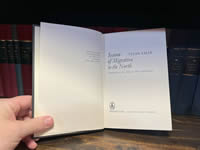 85. Season of Migration to the North by Tayeb Salih (February 2025) [Book #185/305]
85. Season of Migration to the North by Tayeb Salih (February 2025) [Book #185/305]
Also on My Book list - I believe that Season of Migration to the North may be the first book I have read that was originally written in Arabic. And this book almost makes me want to understand Arabic because the prose was so beautifully written that I can imagine it would be tenfold better in the original language. The story is about a man, the narrator, who encounters a stranger in his community, Mustafa. From that point forward, Mustafa's history becomes of paramount importance to the narrator, so much so that Mustafa has some degree of influence over the narrator, as well as many other people. I really enjoyed this book. The prose is wonderful and the story is engaging. There were a few parts that had me squeamish and I'm not how how much of them were related to the Arabic culture of the time (set in the 1920's, published in 1969) or how much of it was just inclusions by the author. I imagine a bit of both. The treatment of women in the story was also heavily dated, but also surprisingly progressive in many ways. However, with all that aside, this book has left me with many questions about the story and Mustafa's influence, which, while the story appears to address, I don't believe the author fully answers. Leaving a bit of a mystery especially once the ending comes about. Overall, I'd say this is a must read.
86. Buddenbrook by Thomas Mann
87. The Magic Mountain by Thomas Mann
88. Beloved by Toni Morrison
89. Ramayana by Valmiki
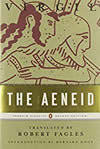 90.The Aeneid by Virgil (March 2006) [Book #43/305]
90.The Aeneid by Virgil (March 2006) [Book #43/305]
Also on the Sybervision list - We head back to the ancient classics with this Roman telling of the travels of Aeneas, a Trojan who ultimately became the ancestor of the Romans. The Aeneid feels like it was written to fulfill the Roman need to copy all of the Greek mythology, and unfortunately that is how this book reads. The first half follows The Odyssey almost to the point of going to the exact same places as Odysseus. The second half is much better and kind of reads as its own story, although it is still reminiscent of The Iliad. The one thing that The Aeneid did do that Homer skipped over was to establish the use of the Trojan Horse as a means for the Greeks to enter the city of Troy during the Trojan War. Overall, I feel that despite this being considered one of the major works of fiction from the ancient times, it feels too much like a rehash of Homer's much better duology. I would personally say you can skip this remake and stick to the original.
91. Mrs. Dalloway by Virginia Woolf
Also on the Observer list -
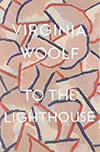 92. To the Lighthouse by Virginia Woolf (November - December 2019) [Book #161/305]
92. To the Lighthouse by Virginia Woolf (November - December 2019) [Book #161/305]
I was initially excited to read To The Lighthouse, mainly because the name of Virginia Woolf has become more popular than her own writing with the popularity of the play Who's Afraid of Virginia Woolf? To The Lighthouse though, turned my expectations very quickly from excited to blasé. At first the book had a very straightforward narrative, but then Woolf would just kind of wander off. It was like trying to keep track of an ADHD kid. One minute she would be on track, following her plot line, but then her thought pattern would be off in a different direction. Eventually she would circle back around and follow up on her initial thread but it made it very difficult for me to follow because when she wandered off, so did my mind. The book is broken up into three sections, with this wandering most noticeable, for me, in the first section. The second part took a dramatic change in tone and style, acting like a fast-forward montage of sorts. The third part then ended up with a similar tone as the first. Eventually, I was able to follow along with the book fairly well and I got pretty invested with the characters. The second section hooked me in. The book, to me, seemed like a push back from the rampant misogynistic attitudes of the day, with the characters having to deal with an overly aggressive (at times) father/husband. The wife, Mrs. Ramsay, is the focal point of the book, despite her not being in the book that much. At times she seems completely aloof, and others, she seems very self-centered, but it is around her which the other characters are drawn to and must learn how to live when she is not around. The most impacted character is Lily Briscoe, a neighbor and burgeoning painter. She ends up being our focal character, through which we see the majority of Mrs. Ramsay's impact. It is an interesting read, and one that would definitely benefit from multiple readings, but in general it feels like the writing style in this one was not for me.
 93. Lolita by Vladimir Nabokov (January - February 2011) [Book #98/305]
93. Lolita by Vladimir Nabokov (January - February 2011) [Book #98/305]
Also on the Observer and the Zane lists - This was a rather odd book for me. At first I thought the book would never, ever, make it on to my Must Read List because of the semi-pornographic nature of the book. But it was worse than that, it made me feel awkward because it is all about a man who has a sexual interest in pre-pubescent girls (around the age of 12-14). So all the while I am reading this, I feel like I am going to get in trouble for child pornography. By once you get past the initial portion of the book things got really interesting. The second half of the book I found to be by far the better half. It focused more on the mental anguish of the main character as he pursues his Lolita, both knowing that he has and will destroy her life, but also not being able to control himself. It is a perfect view into self-destructive behavior. The main plot point of the story is similar to another book I had read, An American Tragedy, which focused on a person in jail and you basically found out how he ended up there. But there is a difference in Lolita, where the story is a first person narrative of basically how he ended up in jail. And throughout the story you assume how he ended there but as you progress you realize you were wrong and it really is for something different. The story was rather riveting in this aspect and I did enjoy the second half of the story immensely. So, all in all, I can't recommend this story due to the awkward feeling first half (which I imagine is almost impossible to get through for some people) but I did enjoy it and would recommend it for those who could get past that point.
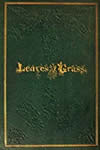 94. Leaves of Grass by Walt Whitman (August 2019) [Book #156/305]
94. Leaves of Grass by Walt Whitman (August 2019) [Book #156/305]
I jumped into Leaves of Grass expecting Thoreau, because I love Thoreau. But alas, I have discovered Whitman seems to be more akin to Emerson, at least in my opinion. Since there are so many versions of Leaves of Grass, I chose to read a reprinting of the original 1855 edition, not the numerous updated and expanded editions that Whitman came out with afterwards. I had high hopes for the book because I do enjoy reading poetry but Leaves of Grass started off on a sour note for me. The preface to the story was practically nonsensical. I made the mistake of attempting to start the book while being very tired, however nothing made any sense and I put it down. I waited to start the book another day and I was able to understand more of it, but the story didn't follow what I was expecting from a book entitled "Leaves of Grass". The preface was about America, and poets, and how great poets are, and it was weird. Turns out Whitman had a bit of an ego. Finally, we delve into the actual poetry and I found snippets of lines that I loved, like this stanza:
"Not I, not any one else can travel that road for you,
You must travel it for yourself."
But overall the poem seemed like a massive list of things Whitman has seen. He lists various occupations, and various types of faces, and different types of people he has seen, and it's all a bit much without any real story to go along with it. I appreciate his views on the world, about how he felt men and women were equal (as far as I could tell) even in the 1800's. I liked when he had story threads sprinkled here and there in the poem but it wasn't enough to maintain my attention. When I read stories that become a bit hard to follow, I tend to mentally wander and I had to go back multiple times throughout this to gather what was being said. I would say that this was a poem that one needs to read multiple times to fully comprehend, however I don't think I could go back and do that again.
95. Absalom, Absalom by William Faulkner
96. The Sound and the Fury by William Faulkner
 97. Hamlet by William Shakespeare (February 1998) [Book #8/305]
97. Hamlet by William Shakespeare (February 1998) [Book #8/305]
Also on the Sybervision and the Zane lists - Hamlet is often considered to be Shakespeare's best play, and this is a rating I can get behind. The tale is about a man trying to find the murderer of his father, while dealing with the slowly ensuing madness of most of the characters around him. Unlike Macbeth, I found Hamlet to be intriguing and quotable. Several of the scenes are memorable, even now, many years after having last read/seen the play. If I had to point people to only one Shakespeare's play to read or watch, this would be the one.
 98.Othello by William Shakespeare (2004) [Book #23/305]
98.Othello by William Shakespeare (2004) [Book #23/305]
Also on the Sybervision list - Continuing on through my "quick reads", I decided to read another Shakespearean play, this time Othello. Again, Shakespeare is not my favorite, and this play is no exception. I feel it is mostly because I don't appreciate the language that Shakespeare uses in his plays. For me it is hard to read. I know what you'll say though, "but you should see it live". For me though, as someone who is hard of hearing, even seeing the plays live I am often left confused and wanting because I can't understand what the actors are saying. So most of Shakespeare's plays leave me with a less than ideal taste in my mouth. Othello is a play about love, interracial romance (a certainly taboo subject at the time), racism, jealousy, and eventually, death. The play deals with some heavy topics and so I can see its continued use in modern day society helping people to discuss difficult topics, especially in schools, but the play isn't for me.
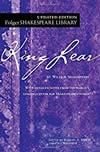 99. King Lear by William Shakespeare (July 2006) [Book #50/305]
99. King Lear by William Shakespeare (July 2006) [Book #50/305]
King Lear is the final play for me to read out of the six Shakespearean plays spread across my 100 Greatest Books lists. My personal take on Shakespearean English remains the same, I find it a barrier of entry for me to enjoy the stories and I often miss many of the subtleties within the plays. The plot of King Lear is generally easy to follow; King Lear (aka Dad) is nuts and his kids divide against him, with his "legitimate" son and one of his daughters on one side, and his bastard son with the other two daughters on the other. I hope this isn't too much of a spoiler but the story ends in true Shakespearean fashion, with 90% of the characters dead. I had found this play to be far easier to follow than most of the Shakespearean plays that I have read, however this isn't one of his best in my opinion.
100. The Sound of the Mountain by Yasunari Kawabata
